



In 2021 I took hyperlink.academy's Language Creation Course with the brilliant, inspired, erudite Mr. Colin Gorrie, PhD.
Looking into some explanational videos on phonetics today.
I'm really enjoying the phonetics of Ju|'hoan, Lakota, and Greenlandic. I'm not sure if I want to include the sorts of clicking sounds I like so much, as they can be difficult for other folks to pick up.
An odd synchronicity: I work at an elementary school, and the afternoon before I started this course, one of our kiddos invented her own alphabet for a secret language.
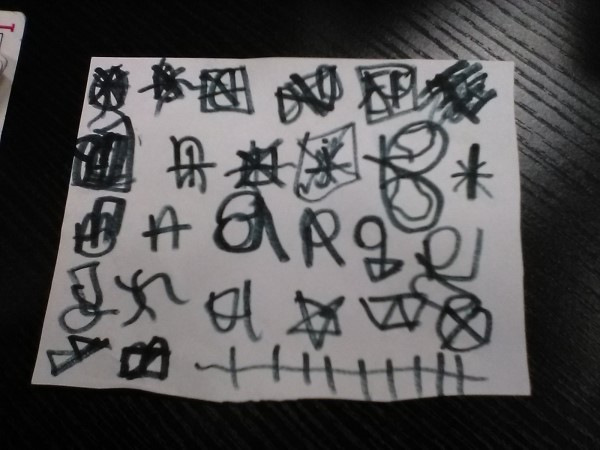
Based on natural languages, we are working to construct our phonetic inventory using the international phonetic alphabet (IPA). It's fascinating to think that every word-noise can be represented by this alphabet. This means, for example, the word "alphabet" would be written differently for British, American, Canadian, and South Asian English speakers if they were all writing in IPA. Dialects and tonal shifts can be tracked using the IPA as word-sounds migrate towards different areas of the mouth. Seems to me that the mouth is an ecology and phonemes are colonizing every bit of space they can, like wild animal populations on a fresh green.
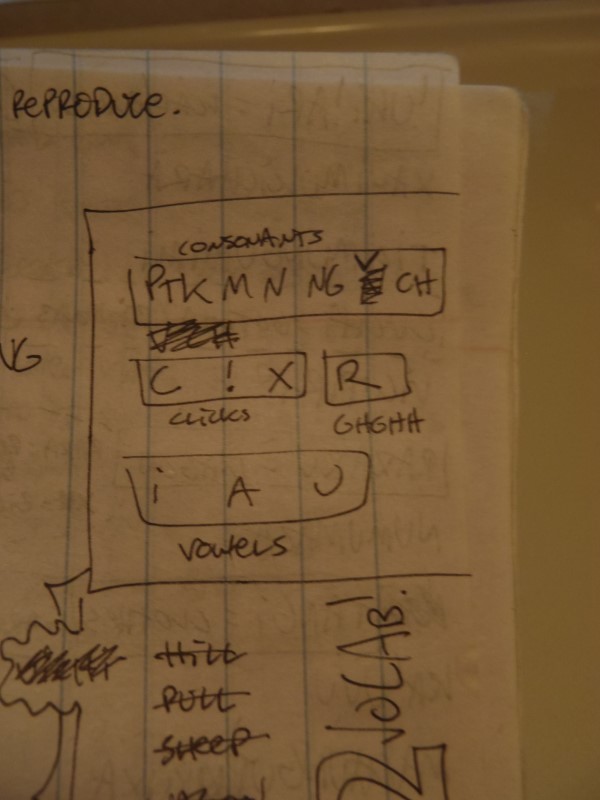
Anyways, I've decided to include three clicks in my language, inspired by Xhosa. These are the dental click, represented by a | but romanized as a c, the palate click, represented by a ǂ but romanized as a !, and the side click (like how you would click at a horse), represented by a ‖ but romanized as an x.
For vowels, I have only three: a, i, and u. These are pronounced as long vowels - "aaaah", "eeeeh", and "ooooh". I was inspired by Inuit languages and Lakota here, both of which seem to have few vowel sounds. I figure if my consonants are going to be so weird, I might as well have some easy vowels.
For other consonants, I have p, t, k, m, n, v, ch, ng, and a throaty sort of gurgle that I'm representing with an r. This sounds similar to the dutch g sound - like you're clearing your throat, but maybe a bit smoother.
Some sample words I've come up with so far: pumumakumara (to pull), vata!ata (to take - don't forget to pop that click!), and cingumatarinapi (a sheep - remember that a c is a front-click and an r is a throaty "ghhh" noise).
I like the idea of a language that is spoken really quickly. Because my language has a small alphabet, the words will have to be longer in order to communicate effectively. Compare this to Chinese, a language with amazingly dense characters and many different intonations to load each syllable with the maximum amount of information. On the other end of the spectrum is something like binary, an alphabet of two characters, where the word "binary" is spelled "01100010 01101001 01101110 01100001 01110010 01111001". Since my language has long, less-dense words, it will have to be spoken quicker to match that human informational speed limit of 39 bits per second.
I've developed a small tool to make new words in my language. The syllable structure is simple: consonant-vowel-consonant-vowel-etc-etc, called a "CV" syllable structure. So this program is very simple as well: it simply chooses a random consonant, then a random vowel, then a random consonant, until the end of a random-lengthed word. Try it, and see if you can pronounce what comes up:
You might notice that there are no click-sounds on the last syllable of any of these words. In this language, the emphasis falls on the second-to-last syllable, and so ending with a click-sound feels very awkward in the mouth.
We haven't yet discussed alphabet design in class, but I've been getting inspired by crop circle formations. My goal is to use this language to record my own dreams and synchronicities, most of which happen at a time when I don't have a pen handy. So, crop circles, which are ideal forms for visualization and memorization, may be a good starting place for a language that bridges the gap between the dreaming mind and the waking mind. As you may know if you've visited here before, I am very into the technology of the dreamstate.
With this language I am attempting to hack my own neural machinery using the mechanisms implied by the Sapir-Whorf Hypothesis. The idea is that the language you use determines the reality you perceive. Seems obvious, but there is a lot of contention over the exact limits of this phenomenon, similar to the debates and discoveries around the placebo effect.
In my research (read: Wikipedia-burrowing) on more ancient languages such as Hebrew, Egyptian, Adinkra, and pictography, I find that there are strong double-meanings to words and images. For example, the Egyptian hieroglyphic that represents a pluralized noun is a tiny quail chick. Not only is the little guy pretty cute, but the meaning is obviously carried into the mundane world. The image of a quail chick is pluralization. Pluralization is embodied as a quail chick. Every word and experience has a metaphor baked in.
I think English has an opposite, taxonomical behavior, which I find too dry and sterile. There is a word for anything and everything, which means we have to work very, very hard to tell good stories. That's what happens when you have to make your sentences out of building-blocks that each carry only one meaning.
On the other hand, languages that employ double-meanings are completely brilliant story-telling and meaning-making languages. I think much of the richness of ancient myths is lost because we have forgotten the basic metaphorical structure of ancient language. When we are told that Hercules, son of heaven, had to complete twelve tasks for the gods, or that the golden King Arthur had twelve knights at his round table, or that Jesus of the Crown of Thorns had twelve disciples, we can clearly see that these are stories reflecting the movement of the radiant sun across the twelve asterisms of the zodiacal year. And, because of that higher association, the human richness of the story glows brighter.
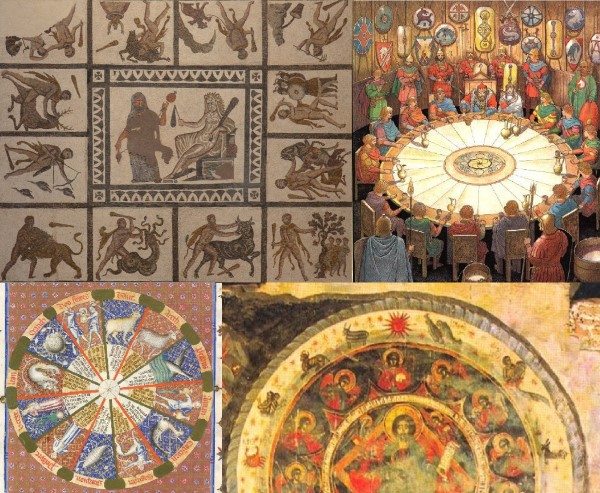
Another example: in Hebrew, numbers carry metaphors as well. The number 40 also means "complete" or "total". I don't mean that the number 40 sometimes hints at the possibility of "completeness" - these meanings are not esoteric or euphemistic like they are in English. The number 40, to the writers of the ancient Bible, meant "4 x 10" just as much as it meant "completeness". Therefore, when we are told that Moses wandered for 40 years, or that Jesus was tempted for 40 days, we are not exactly being told a quantity. We are being told a story.
Cichariki is the name of the language.
Cichariki is spoken by the Cicha!itu. They live on an asteroid so far from any other inhabited planetoid that no radio or light wave arrives at their home with any sort of timeliness or fidelity. The language of Cichariki developed as a technology to communicate with the rest of the galaxy through the faster-than-light entanglement-nonlocality phenomena of telepathy, dreaming, astral projection, and synchronicity.
Through this language, the inhabitants of our dark and lonely asteroid are able to communicate with other beings across the enormous emptiness of spacetime. Though, who can say if others even recognize the existence of the Cicha!itu? An odd thought during your drive to work, a mad inspiration in the middle of the night: perhaps the Cicha!itu are speaking to you.
Putting together more vocabulary this week, including pronouns, conjunctions, and tenses.
In the dreaming, in my experience, normal pronouns don't work so well. Identity, gender, and animacy are all quite fluid. When I remember my longer dreams, I notice that a companion or an adversary will change their face and their attitude while remaining in the same narrative role. Recently I was dreaming about a road trip, and during the dream my adventure pal shifted between a childhood best friend, my mother, a dog, and finished up as a bead on a necklace. I'm sure you, dear reader, have had similar experiences. So, in Cichariki, there are no "he" and "she" and "it" pronouns. Rather, pronouns are placeholders for archetypal roles, because those are more permanent structures within the dreaming.
Vungiti is the pronoun for The Adversary, The Enemy, The Antagonist. I find that this character will wake me up quick if it/they/he/she gets too close. Occasionally, if I'm able to confront vungiti, I will pop into a higher level of awareness and lucidity in the dream as we do battle and/or I run for my life. An example sentence: "I am being chased by a horrible-looking goat-man. Vungiti's tongue is sticking out so far it's dragging on the forest floor as we run."
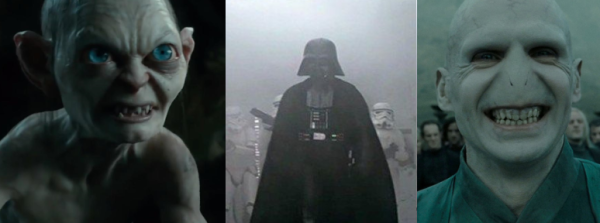
Chinga is the pronoun for The Friend, The Companion, The Travel Buddy. This character is, for me, the most likely to change form throughout the dream. "I am asking a purple octopus why it is flying a plane with a blindfold on. Although the octopus pilot is going a zillion miles per hour through a storm, chinga calmly explains that chinga is practicing chinga's Jedi skills."
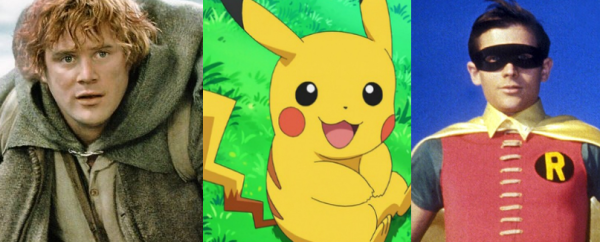
Tachi is the pronoun for The Crowd, The Mob, The Audience. Everyone else. People. In my experience there is often a vague mass of people with one intention or characteristic. A bored queue at the airport, or maybe a crowd of drunk elves populating a sprawling house party, or a coven of homely witches all knitting nettle around the fireplace. "I am trying to leave but there are people walking dogs everywhere I go, blocking the way. I try and step over or around tachi but there's always more."

Please, tell me all about the characters you experience in your dreaming. Together we can scooby-doo their masks off and give them a better name.